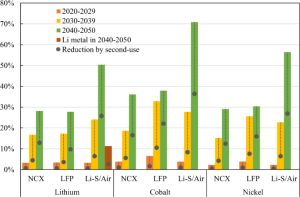Solid State Batteries Promise Electric Car
A new battery technology that is based on solid-state cells could help the electric car revolution. It promises a lower cost of operation and longer battery life, but there are still several factors that must be considered before the new battery can become a reality. For example, it will need to prove demand in the EV industry and overcome initial costs. But, if this new technology succeeds, then it could be a game-changer for the future of the auto industry.
The main advantage of solid-state batteries is their potential to improve battery performance and increase life. The battery technology has been used for the electric car in recent years. It’s possible to charge the battery faster than a lithium-ion battery. The batteries are also able to provide better thermal regulation, meaning that they’re less likely to catch fire. However, until electric cars become more widely available, there is still a long way to go before these new batteries become commonplace.
Manganese Market Analysis by Martin Kepman CEO of Manganese X Energy Corp
Solid-state batteries have the potential to become the main battery in electric cars. Unlike liquid-ion batteries, solid-state batteries don’t have a volatile electrolyte. This means they’re more prone to fire and chemical leaks. Another advantage of solid-state batteries is their high energy density. Compared to a standard lithium-ion battery, they can hold more energy, making them more suitable for electric cars.

Solid State Batteries Promise Electric Car Popularity
Despite the high cost of solid-state batteries, more automakers are talking about them as a viable solution to the battery problem. The solid-state battery will make plug-in cars a viable alternative to internal combustion engines. While solid-state batteries aren’t likely to be on the market this decade, fuel cells and electric cars are poised to make up for lost ground. Until then, the electric car is still a far cry from mass-market availability, but there’s still hope.
Although the technology is still in its early stages, it promises to reduce the costs of electric cars. The cost of solid-state batteries is estimated to be around $260 per terawatt-hour. This would require an increase in the capacity to produce at high volumes. The new batteries would be required to be pre-heated before they were used in passenger cars. Because they are so expensive to manufacture, solid-state batteries might not be practical for private passenger vehicles.
The current solid-state battery will be the best option for electric cars, but their price will depend on the manufacturer’s budget and needs. The battery will be more expensive than conventional batteries, but it will provide more power. Currently, there are only a few manufacturers offering electric cars that use solid-state batteries. They are not yet ready for mass-market sales, but they will be available for the public to purchase.